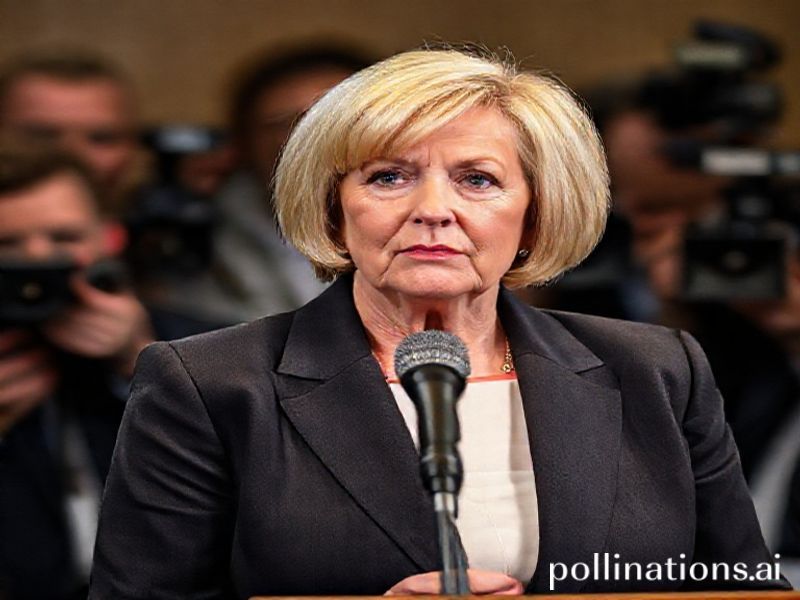Pauline Hanson: The Controversial Aussie Export Taking Over Your Timeline
# **Pauline Hanson: The Controversial Aussie Export Taking Over Your Timeline**
If you’ve been on the internet lately, you’ve probably seen the name Pauline Hanson popping up more than a teenager’s selfies on a Sunday night. But who is this woman, and why is she suddenly the talk of the global town? Buckle up, because we’re about to dive into the world of Australia’s most controversial export since Vegemite.
## **Who is Pauline Hanson?**
For those living under a rock (or just not in Australia), Pauline Hanson is a politician who’s been stirring the pot since the ’90s. She’s the founder and leader of the One Nation Party, a right-wing political party that’s known for its strong stance on immigration, multiculturalism, and, well, pretty much anything that ruffles feathers. Think of her as the OG of political hot takes—long before Twitter existed, she was serving up controversy with a side of “I’m just saying what everyone’s thinking.”
## **Why Is She Trending Now?**
Hanson has always been a polarizing figure, but her recent resurgence in the spotlight can be attributed to a few key factors:
1. **Social Media Savvy**: Hanson has embraced the digital age with the enthusiasm of a teenager discovering memes. Her party’s social media game is strong, and she’s been using platforms like Facebook and Twitter to spread her message far and wide. Whether you love her or hate her, you can’t deny she knows how to work the algorithm.
2. **Global Political Climate**: In an era where populism is on the rise, Hanson’s messages resonate with a growing audience. Her anti-immigration rhetoric and calls for stricter border control echo sentiments expressed by leaders around the world. Whether you agree with her or not, she’s tapping into a global mood.
3. **Controversial Statements**: Hanson has a knack for saying things that make people sit up and take notice. From her infamous “final solution” speech in the ’90s to her recent comments on Islam and multiculturalism, she’s never one to shy away from controversy. In the age of viral content, her statements are catnip for the internet’s outrage machine.
## **Cultural Context and Social Impact**
Hanson’s influence extends beyond politics; she’s a cultural phenomenon. Her rise to prominence in the ’90s coincided with a time of significant social change in Australia. The country was grappling with issues of identity, multiculturalism, and national unity, and Hanson’s messages struck a chord with a segment of the population that felt left behind.
Today, her impact is felt in the ongoing debates about immigration, national identity, and the role of government. Her party’s success in recent elections has forced mainstream political parties to address issues they might otherwise have ignored. Love her or hate her, Hanson has a way of making sure her voice is heard.
## **Why Should You Care?**
Even if you’re not an Aussie, Hanson’s story is relevant. She’s a prime example of how populist rhetoric can gain traction in a time of social and political upheaval. Her rise to prominence offers a cautionary tale about the dangers of divisive politics and the power of social media to amplify controversial voices.
Moreover, Hanson’s story is a reminder that politics is never boring. Whether she’s making headlines for her latest controversial statement or her party’s electoral success, she’s a force to be reckoned with. And in an era where politics often feels like a never-ending drama, Hanson is the character you can’t help but watch.
## **Conclusion**
Pauline Hanson is more than just a politician; she’s a cultural icon, a social media maven, and a master of controversy. Her ability to stay relevant in the ever-changing political landscape is a testament to her resilience and adaptability. Whether you’re a fan or a critic, there’s no denying that Hanson is a force to be reckoned with.
So, the next time you see her name trending, take a moment to understand why. Because in the world of politics, Hanson is a reminder that sometimes, the most controversial voices are the ones that shape the conversation.







